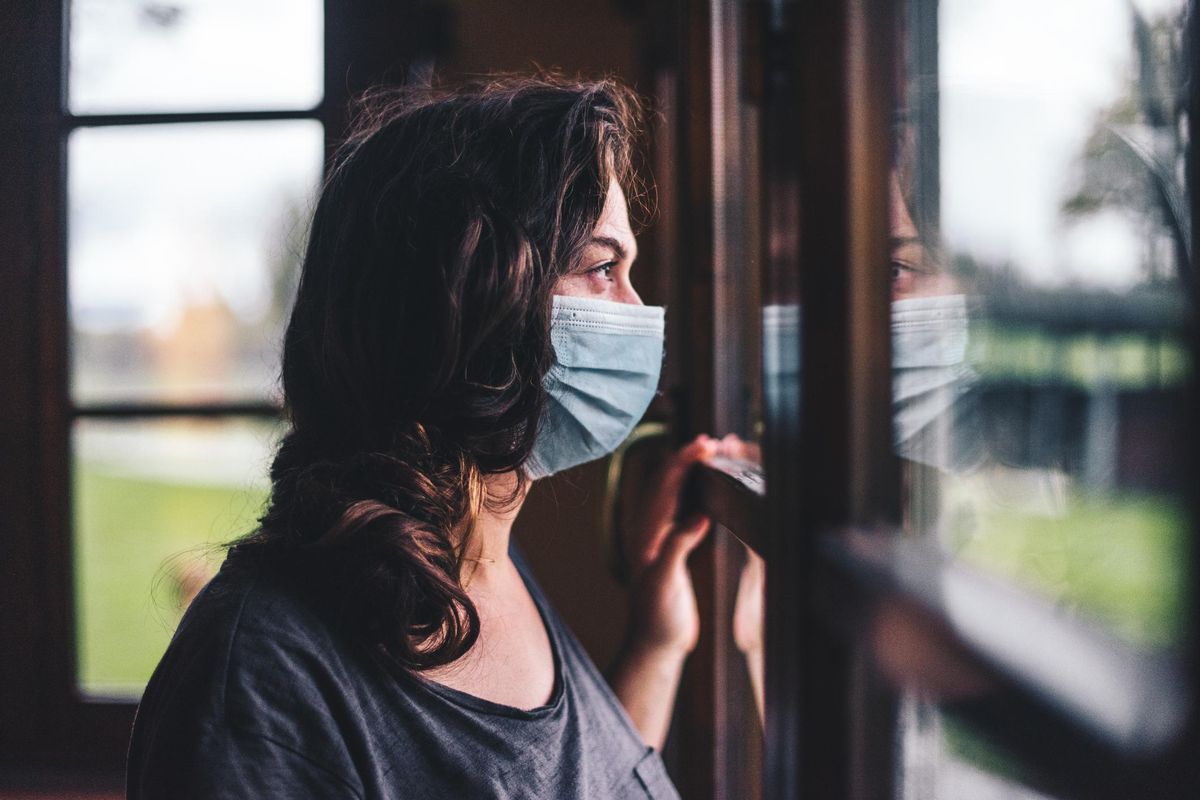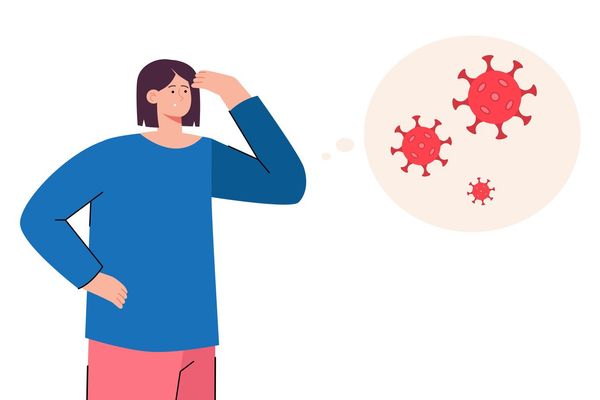The Covid-19 pandemic threw many lives into turmoil. For family caregivers who may have already been running on empty, it made life even worse. Shé Langley, a 38-year-old business owner in Virginia, is one of the many women who had to find ways to cope while she cared for her two young children and her mother, who has
dementia, all while trying to run her business.
Before Covid-19 struck, Langley balanced her life by sending her children to daycare and managing her mother’s needs with her sister and some paid caregivers when possible. But Covid threw her a curveball. “Right before Covid vaccines were readily available in early 2021, my son got it in daycare. He was 5 at the time,” she said. “I isolated with him for 14 days while my husband and [then-6-year-old] daughter isolated in another part of the house.” Right after that period, her husband and daughter both tested positive. Based on quarantine guidelines at the time, as the caregiver, Langley had to isolate herself for another 14 days after each family member finished isolation, further restricting what she could do for her mother.
Almost half of caregivers in the United States are worried that they will come down with Covid. After all, who will care for their loved ones if they become ill? Finding paid caregivers has also become challenging. Not only are many caregivers exposed to or coming down with Covid themselves, but those who are available are becoming more expensive, Langley said.
Caregiving in the United States
Almost one in five adults in the U.S. provides some unpaid care to another adult. And almost two out of three caregivers are women. Black caregivers often provide more hours of care per week (more than 40 hours) compared to white caregivers, and they frequently care for a loved one who lives below the poverty line. Increased care time and little money to pay for help contribute to caregiver stress and fatigue. Isolation because of stay-at-home orders and keeping people away for fear that they might infect vulnerable family members adds to the problem. Caregiving is isolating in the best of times. The pandemic made it much worse.
When surveyed about their worries during the pandemic, about one-third of caregivers replied that they were concerned about finances and being able to afford care. This was particularly important among those who lost their jobs. And over half said that finding some help or respite from giving care was challenging.
Serena Lee, ASW, an associate clinical social worker at Families Together of Orange County in California, a nonprofit dedicated to increasing access to healthcare, found that financial concerns touched most of the people she comes across in her daily practice. “I would say that everyone I worked with who is a caregiver and is isolated and experiencing [caregiver] fatigue does have a low socio-economic status,” she said. “And I think that’s significant because they not only have challenges with caregiving, but they actually have very limited resources of being able to do so.” The most obvious effect of inadequate finances is being unable to pay for the basics. But it also affects a caregiver’s ability for self-care, Lee pointed out. Self-care is vital for caregivers to continue with their unpaid work. It can include simple treats, like going to a movie or having a manicure, to important things like attending doctor’s appointments or running errands.
Caring for the caregivers
A report published in the summer of 2020 found that, compared with people who did not have to care for someone else, caregivers had higher levels of anxiety, depression and insomnia, as well as worries about finances and food. But with support, this can change. First, it’s important to note that many of these women struggle, even if they may not seem to. “We only see a small snippet of their lives,” Lee said. “We don’t see the everyday interactions of having to put on a happy face for their loved one, helping them take showers, of struggling to get them in their bed, taking them to doctors’ appointments.” Lee suggested that friends and family keep in mind that caregivers are in it for the long haul and that they need long-term support.
“If there's a call to action, it would be about consistency in checking in with your caregiver friends and loved ones,” Lee explained. “Even that simple phone call to let them know that you’re thinking of them and that you’re there for them. It does go a long way because they might not always have the time to reach out.”
Places for caregivers to find support
Langley found support from her church, family and close friends. She received many calls and people checked to see if she or her family needed anything. “Family and friends dropped off food and gift cards so we could order food or things that we needed, like pulse oximeters and things like that,” she said. In addition, Langley applied for some grants as a business owner since her work hours had decreased so much because of the extra caregiving tasks. “Support came in different ways,” she said. “It was definitely helpful to have that support.”
Another important thing, according to Langley, is actually to ask for help. “Often, women don’t want to say that they need help. Reach out and lean on the support,” she said. “I think also sometimes we strive for perfection or want everything to go right or a certain way. We’ve had to adjust our mentality to know that everything will not go according to plan. And that’s okay. We just have to deal with what’s in front of us at the time and make the best decisions we can with the information we have available.”
Lee suggests caregivers reach out to support groups for help. “Check out hospitals or national foundations to see what is offered to caregivers,” she said. Many organizations have local branches or an online presence that allows people to share their experiences and offer tips.
It’s important for caregivers to know they’re not alone. “There are other people who are going through the same thing, being in that sandwich generation,” Langley said. “And although it can be lonely and isolating, find the support that you need when you need to. And just keep hoping that you and those you’re caring for come out better on the other side of the valleys.”
Resources
This resource was created with support from Pfizer.







